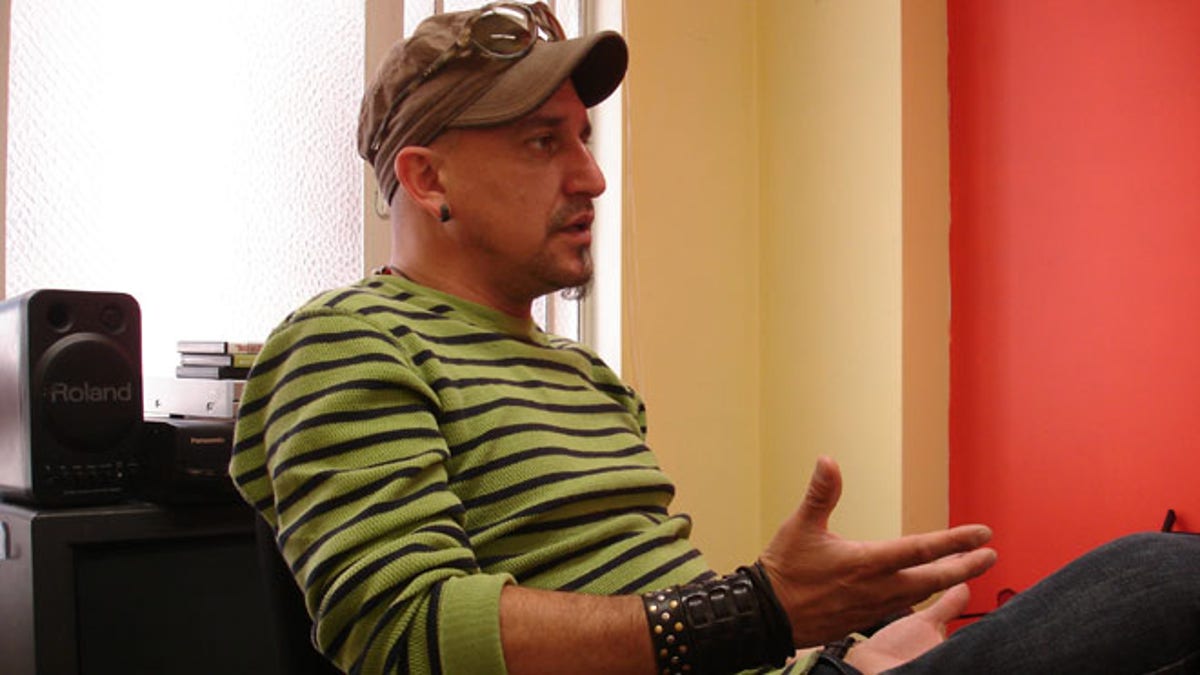
(Courtesy of Juan Cuba)
Fifteen years ago, Juan Cuba was forced to spend 52 weeks in a court-appointed program for physically violent abusers. Who would have known one year would be so life altering for him? This August, in conjunction with Bay Area Women Against Rape, or BAWAR, Cuba will launch his own program--Latino Men Survivors of Sexual Abuse Group--the only one of its kind in the Bay area.
Born in Peru, Cuba’s family moved him to Los Angeles during his second year of college. There was a civil war going on at the time, and his family was afraid Cuba would fall prey to the ongoing violence. Little did they know how the violence in his own neighborhood, growing up fighting regularly with local boys, had already made an indelible impact on the young man.
Finishing college and moving to the Bay area, Cuba says he began to have serious anger issues. It started slowly and escalated to full-on physical violence against his partners--not something he’s proud of.
When one of his girlfriends finally called the police, Cuba was arrested and ordered to attend a program for abusers.
The program forced me to analyze myself. I came to the realization that every perpetrator is a survivor and every survivor can be a perpetrator. It’s about not continuing the history of abuse
“The program forced me to analyze myself," Cuba said. "I came to the realization that every perpetrator is a survivor and every survivor can be a perpetrator. It’s about not continuing the history of abuse. I was in a violent neighborhood, forced to defend myself. I became a very angry person. I acted out in violent ways against the people I was supposed to care about."
When Cuba’s program ended, he says he spent time volunteering at the nonprofit organization Men Overcoming Violence (MOVE), and then San Francisco Women Against Rape. In his work sharing his story with women who had been in violent relationships as the victim, he was able to help himself and others.
He knew this would be his life’s work. After training and volunteering, he eventually landed his first job at La Clínica de la Raza in Oakland, working in the mental health department. He was also working with BAWAR.
Cuba worked almost exclusively with women, but because he could speak Spanish, he became the go-to guy for any and all Latinos. And little by little, a small group of Latino men began to find him. These men weren’t abusers though like Cuba, they were victims of sexual violence and abuse. His work with these men grew from a few random guys to larger group sessions.
Cuba describes the two groups of Latino men he commonly works with.
“One is a member of the LGBT community," Cuba said. "Sadly, these men believe the abuse they suffered is collateral damage of being gay. They internalize this. It hinders their ability to come forward and healing is really hard."
The second group are men who identify as heterosexual, but have been raped or abused by men in a homosexual act.
"These can be men abused by priests for example—not a small number believe it or not,” Cuba said.
Cuba talks a lot about the particulars of helping Latino men within the context of their cultures. “There’s a stigma in our community about confronting abuse. It’s a direct threat to masculinity and there’s the belief that if a man gets raped or abused, it’s because he’s not a real man. In essence saying to men, they deserve it. With regard to religion there’s still the antiquated attitude that if you’re gay, and you’ve been raped or abused it’s a curse from God,” Cuba says.
The program Cuba is launching will be a savior for many Latino men. They can receive multiple free sessions of traditional mental health counseling and access to alternative therapies Cuba feels they can relate to more easily, such as drumming, Santería, and dance—tools Cuba says he uses to help integrate their culture into their healing process.
“There’s less money in general for men in this country, but for Latino men even less," Cuba said. "Recently the Department of Justice began to allocate money to provide more men’s programs—mentoring for young men and sexual abuse victims. Attitude’s are changing, and that’s the first step, but very slowly."
